With a poet’s creativity and a pastor’s heart, Rev. Kennetha Bigham-Tsai nourishes a bold vision of a church that is spiritually grounded in God and in United Methodist identity and spiritually awakened by courageous people living out God’s call and mission in the world today.
JAMES DEATON
Content Editor
This summer, Rev. Kennetha Bigham-Tsai took six weeks of spiritual renewal, grounding herself in things she loves. It gifted her with precious time with family, a chance to write more, space for prayer, and the opportunity to experience more of the world and connect with new people.
The rest of the year looks very busy, and this sabbath was welcome as Kennetha prepares for North Central Jurisdictional Conference, November 2-5, where she is the Michigan Conference’s only endorsed episcopal candidate. Delegates are preparing to elect up to three bishops.
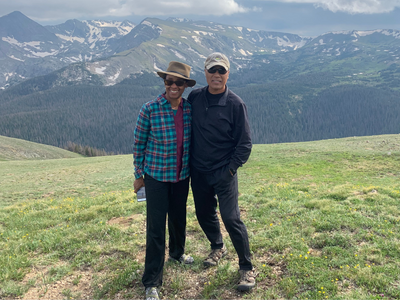
Kennetha’s rich spiritual practices have sustained her through years of ministry as a pastor, a district and annual conference leader, and now as the Chief Connectional Ministries Officer for the Connectional Table, which discerns and articulates the vision of The United Methodist Church and helps determine how finances are used for our worldwide connectional mission.
Daily contemplative prayer. Writing with intention. Enjoying the beauty and sustenance of God’s good creation. Deep bonding with her husband and sons. Regular sabbath-keeping.
These practices anchor Kennetha’s faith and inform her approach to spiritual leadership within the church. They give her the fortitude to help others navigate the incredible division and discord we face in The United Methodist Church and within our society. They give her the capacity to listen to and walk alongside churches experiencing change and myriad losses. They give her the well-spring of hope that nourishes her vision of a United Methodist people who are bold to claim their identity and embrace the spiritual awakening unfolding before them.
With Christ at the center of her life and ministry, Rev. Kennetha Bigham-Tsai offers herself to the larger discernment process of the jurisdiction in the whole church. She understands the episcopacy to be set-apart ministry, a wider call to spiritual leadership for the whole church amid profound challenges. And throughout, she remains open to the Holy Spirit’s movement.
Grounded in God, Committed to the Church
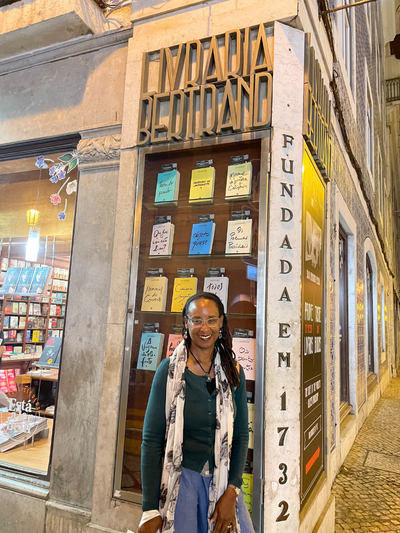
Lisbon, Portugal, was Kennetha’s home away from home during much of her summer renewal. Books feed her soul, so she was thrilled to discover the world’s oldest bookstore still in operation—Livraria Bertrand, which opened in 1732.
At Bertrand, she was glad to see a Portuguese edition of one of her favorite poet’s books—Amanda Gorman’s Call Us What We Carry.
“[Gorman’s] so young. And she’s so prophetic. But so much of what speaks to me about her poetry is, in some ways, she is writing about the experience of a young Black woman in this country. And she’s writing from the perspective of hope. So, I find joy in those words.”
A creative writer and thinker, Kennetha pores over poetry, including the words of Scripture, with great delight as it inspires her own writing. “I get up early in the morning,” she says, “and I read poetry, and I write poetry, and I write creative nonfiction and short fiction, and things of that nature. So, my writing sustains me.”
Poetry and Scripture inform her prayer life, which keeps her grounded and connected to God. She has practiced contemplative prayer, a bedrock of her spiritual life, for decades.
While in Portugal, Kennetha visited various religious sites, including Mosteiro de Batalha, a Dominican convent and a UNESCO World Heritage Site, and the town of Fátima. Her background is ecumenical, having grown up Baptist and spent time serving in the African Methodist Episcopal Church, and she appreciates the depth and breadth of Christianity.
But it’s her commitment to United Methodist beliefs that grounds her spiritual leadership in the church. Our Wesleyan theology of grace upon grace, lived out in the Social Principles, first drew her to The United Methodist Church and continues to undergird her life and ministry. It also sustains her as she has crafted her vision of the church for the future.

“I know [the Social Principles and our polity] are not perfect,” she says, “but they spoke to me because what I saw was an openness to people of color, I saw an openness to women in ministry. There is a burgeoning and growing . . . desire and urgency around being open to the full enjoyment and celebration of the gifts of our LGBTIA+ siblings, so that no doors are closed.”
Spiritual grounding is what Kennetha feels the church needs right now, at this moment, coming out of the pandemic and facing the discord and division all around. She believes we need to lean into our theological identity, to claim and celebrate who we are as United Methodists.
Kennetha acknowledges that we are experiencing individual and communal trauma on many levels. Many of us were with loved ones as they died because of COVID-19 complications. We witnessed healthcare workers being harassed. We watched insurrection on January 6, 2021, at the U.S. Capitol. And we continue to witness gun violence within schools and places of worship.
We are also experiencing trauma as United Methodists, as annual conferences face losses of churches because of disaffiliation.
Kennetha felt this personally when she attended this year’s Michigan Annual Conference, the first in-person annual conference since the beginning of the pandemic. “This is my people. This is my church,” she confesses. “This is my community. What happens if it splits? . . . It’s not just that I’ve lost individuals. I’ve also lost a sense of my own identity and my own understanding of what it means to be the church when this kind of thing is happening. And that’s hard.”
Having served 10 years on the Connectional Table, listening to people’s concerns and nurturing collaborative relationships throughout the worldwide United Methodist Church, Kennetha believes she is equipped to help annual conferences navigate the loss and grief they are experiencing now and shepherd them through the changes that are on the horizon.
Kennetha’s authentic, nonanxious spirit paired with her grounding in God and commitment to United Methodist theology have formed her into the Christlike leader she is today.
Called to Cast a Vision, Act with Boldness
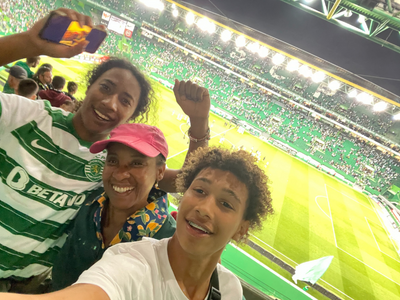
Rev. Kennetha Bighan-Tsai loves to garden, and she finds spending time in God’s creation meaningful and rejuvenating. On her spiritual retreat in Lisbon, she enjoyed strolling through the city’s gardens.
She values long walks in nature, where she can process difficult situations, talk with God, and hear from the Holy Spirit. Walks with her husband, Kee Tsai, also provide strength.
Kennetha’s relationship with nature and her commitment to God’s justice for all peoples have led her to the writings of Joy Harjo of the Muscogee (Creek) Nation and how she describes the indigenous experience. Harjo writes about a deep connection to the earth and ancestors. “For me,” Kennetha says, “that gives an awareness of the sacredness of our relationship with First Peoples and the call to take concrete action to heal those relationships.”
The church, according to Kennetha, must be spiritually grounded but also spiritually awakened. The Holy Spirit is still at work, and the church is still relevant with a transformative message of good news that changes lives. Episcopal leaders within the church have an opportunity to inspire people with hope and cast a vision that moves people to action.
The pandemic has changed how we serve and minister as Christ’s disciples. We were forced outside the church walls in ways that we had not been able to do before successfully. We are innovating and using technology in new ways. Kennetha believes all these are positive ministry shifts for the church to lead in a way that creates authentic communities of faith.
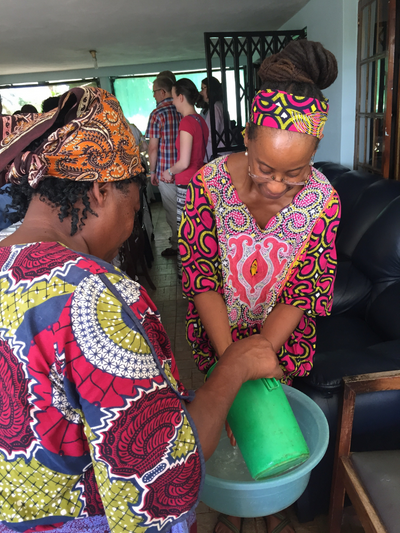
Vibrant faith communities are energized and inspired by a vision of God’s justice and peace.
Kennetha’s vision is bold and inclusive: “I see our church ordaining LGBTQIA+ clergy based on gifts and graces and call. I see the future church as an antiracist church working to dismantle racism, to do it with courage, and to do it throughout every ministry, including our ministries of evangelism. That we would be a growing church, and as we grew, we would grow in diversity and in our commitment to racial justice and equity. I see a church that is more compassionate to people. A church that cares about the sustainability of the way we live on the earth. A church that can learn from indigenous people about how to keep sacred what God has given us.”
The deep commitment to racial justice and equity within the church has led to an endorsement from Methodists Associated Representing the Cause of the Hispanic/Latino American (MARCHA), the national Hispanic/Latinx Caucus of The United Methodist Church and The Methodist Church of Puerto Rico.
The experience Kennetha’s had on the Connectional Table facilitating conversations with various individuals and groups within the worldwide United Methodist Church has equipped her for leading the church into the future.
Kennetha’s creativity was instrumental in designing the 2021 State of the Church Report, which describes how The United Methodist Church, over this past year, has sought to define its missional and theological identity better. This video report honors the worldwide church and centers the church’s unity on Christ and our mission together as United Methodists.
While in Lisbon, Kennetha wanted to worship with other United Methodists, so she found a church that was part of the Portuguese Methodist Church, an offshoot of the Methodist Church of Great Britain. Even though she doesn’t speak Portuguese, the worship elements—the liturgy and the hymn tunes—were familiar. And the majority of the people there were United Methodists who had emigrated from Angola to Portugal. It was similar to experiences she’s had in other contexts around the world—in Côte d’Ivoire, Manila, Mozambique, and Norway.
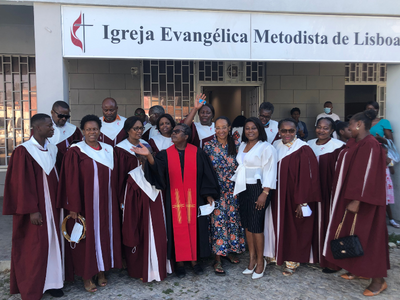
“I felt right at home,” Kennetha says. “This is my family, and my family is all over the world. And my United Methodist family speaks multiple languages. I think this is really important; one of the implications of us fully living into our worldwide nature is that it would get the center off the U.S. and U.S. political dynamics, which are quite divisive. It’s not like that everywhere.”
The United Methodist Church is a global church centered on God in Christ, and Kennetha has witnessed it throughout her years of ministry. This is part of her vision for the church that is emerging right now, and it’s a vital component of the mission to which God is calling us. It’s a vision for the church to be transformed, to be beloved community.
But we don’t have to travel halfway across the globe to witness this worldwide church.
“We are part of the worldwide church,” Kennetha says. “The worldwide church is not over there; it is right here. Our churches tend to be very segregated. But if you look in many of our communities, the world is here because of the movements of people around the world. The world is here, and it is everywhere.”
With a poet’s vision and a pastor’s heart, Rev. Kennetha Bigham-Tsai has prepared herself for the creative, adaptive leadership as an episcopal candidate at this moment in the life of The United Methodist Church. Her vision is of a church that builds others up, that honors diversity.
“Our unity is in the mission and ministry that we do around the world. We may think differently, we may need to practice ministry differently, depending on our cultural context, but we find our unity in Christ, in the love of God and neighbor, in mission and ministry throughout the world.”
Last Updated on October 31, 2023

